Find Help
More Items From Ergsy search
-
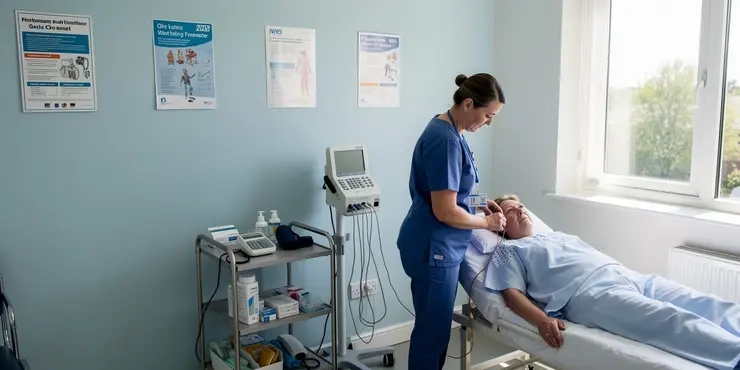
Electrocardiogram ECG
Relevance: 100%
-
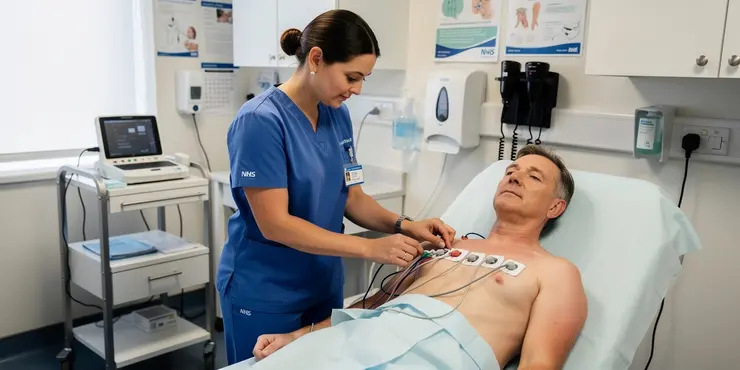
Performing a 12 lead ECG
Relevance: 54%
-
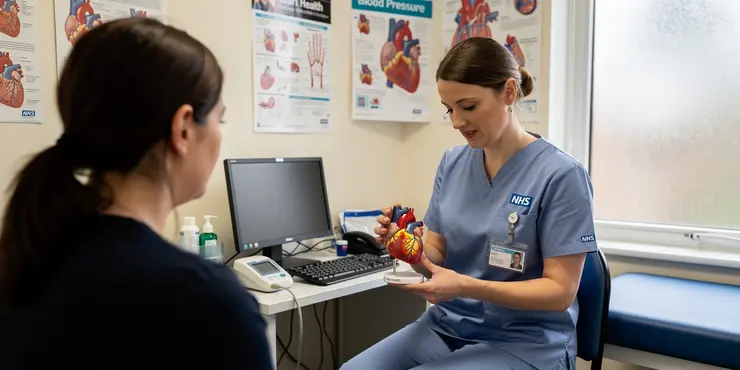
Cardiac Physiology Walkthrough
Relevance: 25%
-
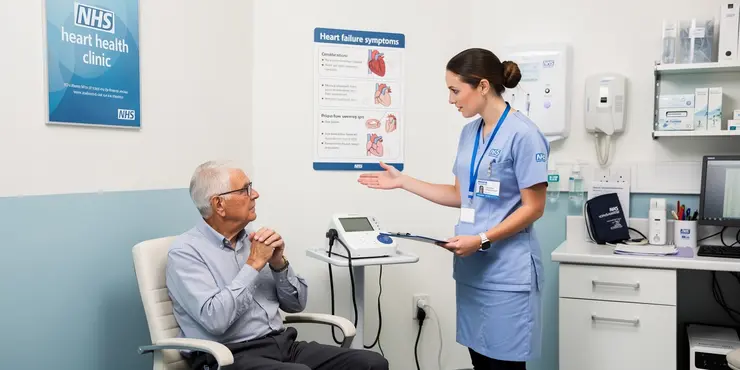
How is heart failure diagnosed?
Relevance: 24%
-

Heart Failure : When the heart becomes stiff?
Relevance: 18%
-
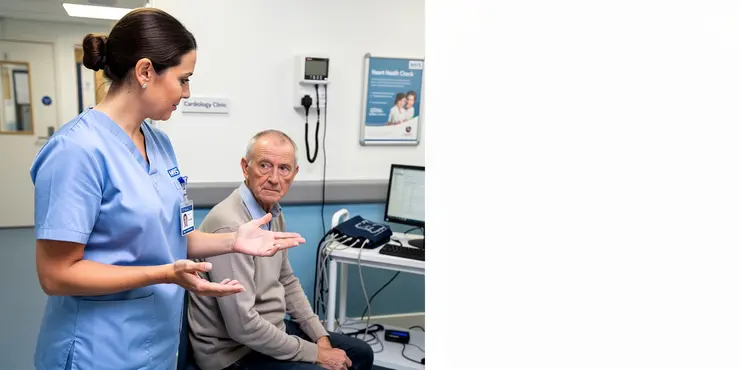
Is my abnormal heart rhythm dangerous?
Relevance: 16%
-
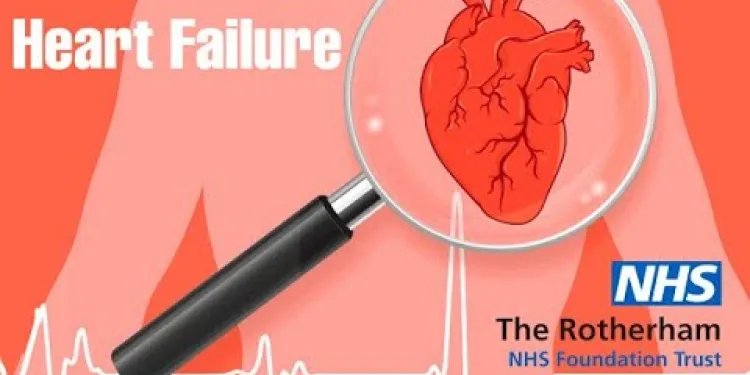
Heart Failure : What is heart failure?
Relevance: 16%
-
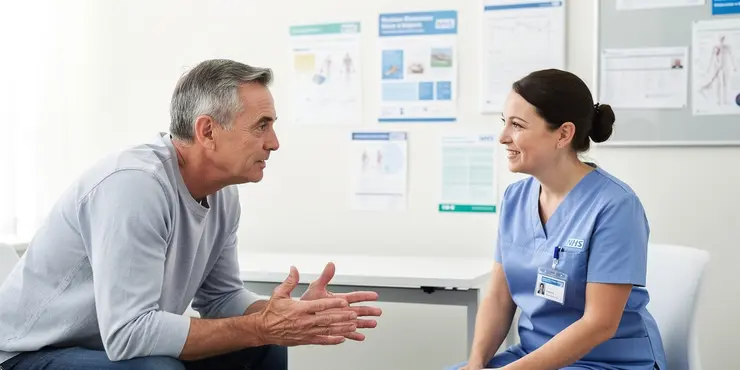
Is it possible to have a heart attack without chest pain?
Relevance: 15%
-

Heart Failure : The normal heart
Relevance: 15%
-
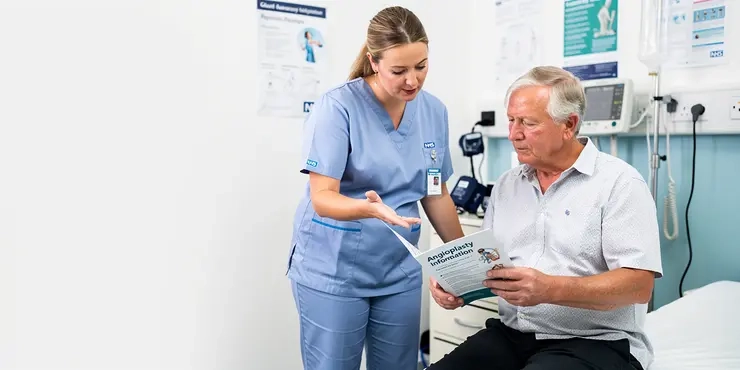
Before Angioplasty
Relevance: 12%
-
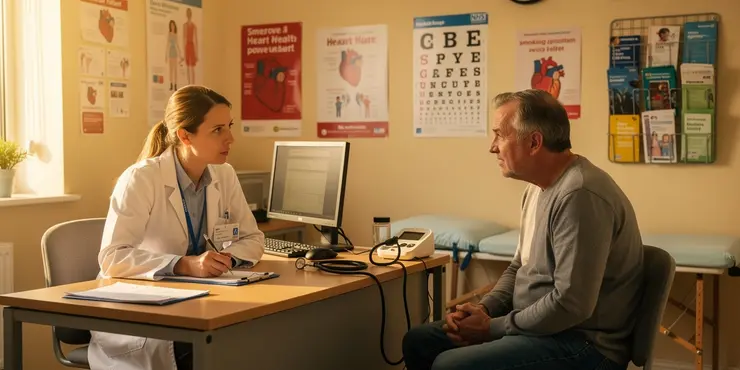
What should I do if I experience symptoms of heart failure?
Relevance: 11%
-
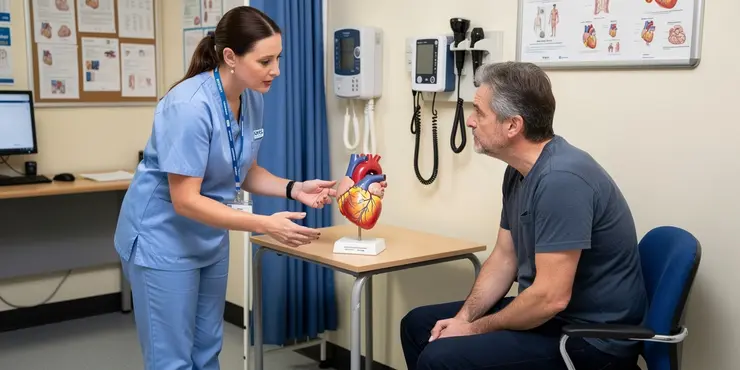
What is heart valve disease?
Relevance: 9%
-
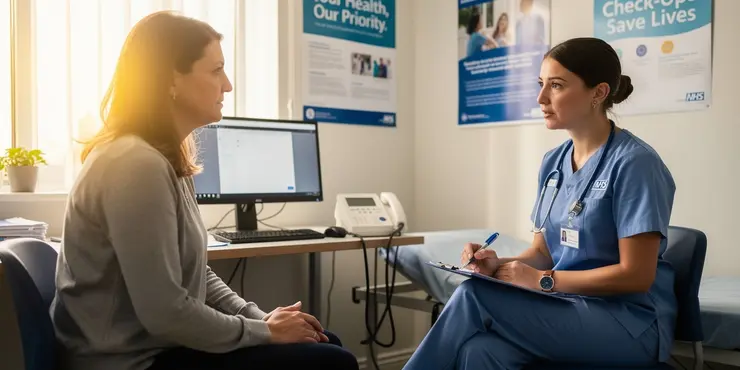
Can the test be performed during my menstrual period?
Relevance: 7%
-
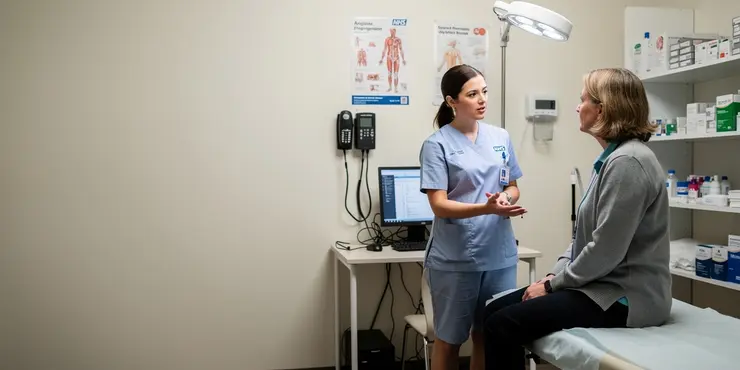
What is angina and how is it treated?
Relevance: 6%
-
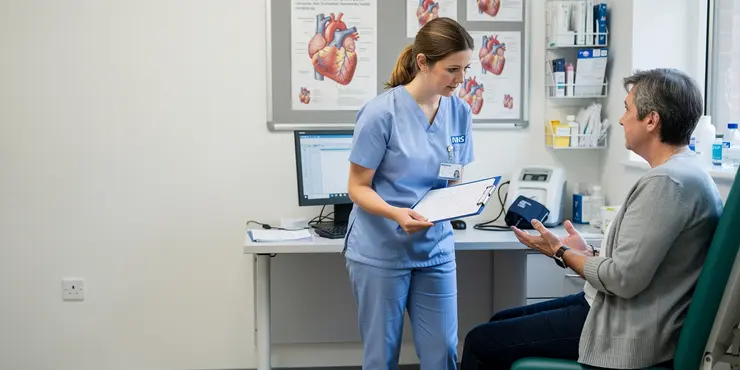
What exactly is an arrhythmia?
Relevance: 6%
-
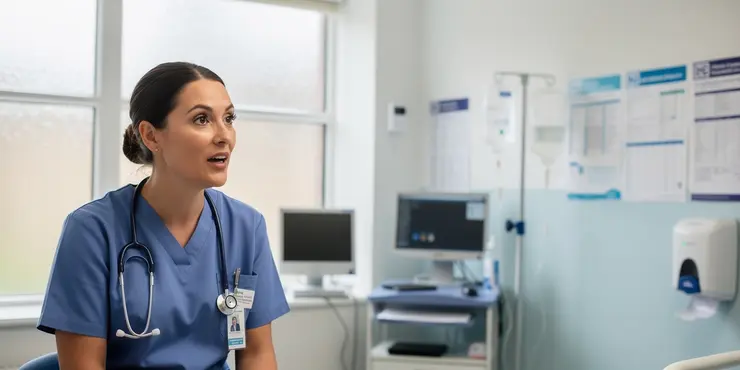
South London Arrhythmia Nurses Forum (16 June 2022)
Relevance: 6%
-
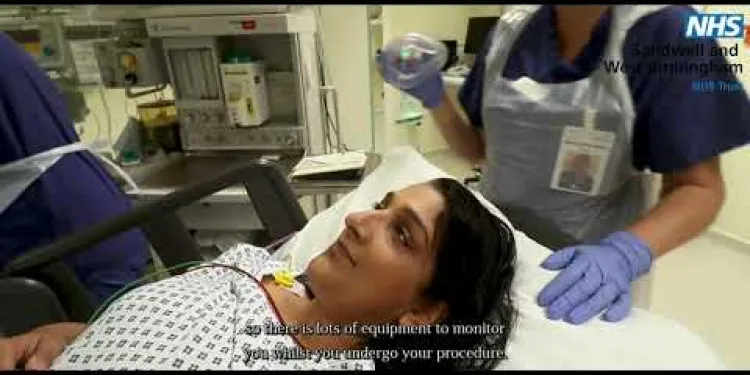
What to expect when visiting our hospitals for surgery | Theatres
Relevance: 6%
-
What to expect when visiting our hospitals for surgery | Theatres
Relevance: 6%
-
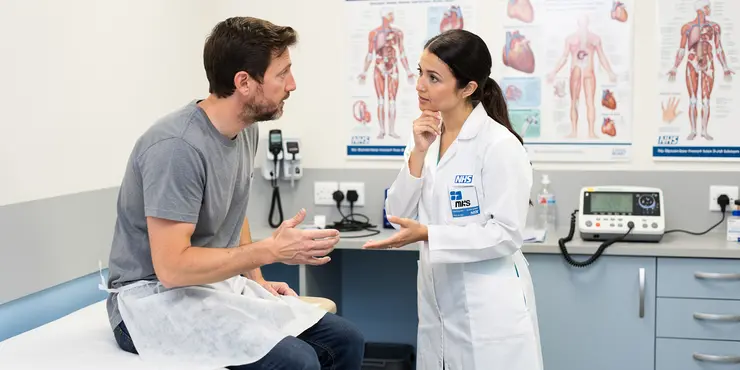
Is my abnormal heart rhythm dangerous?
Relevance: 6%
-
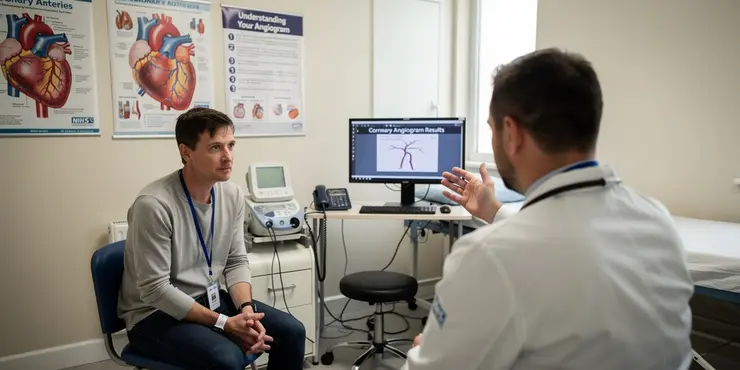
Introduction to coronary angiogram and stenting
Relevance: 6%
-
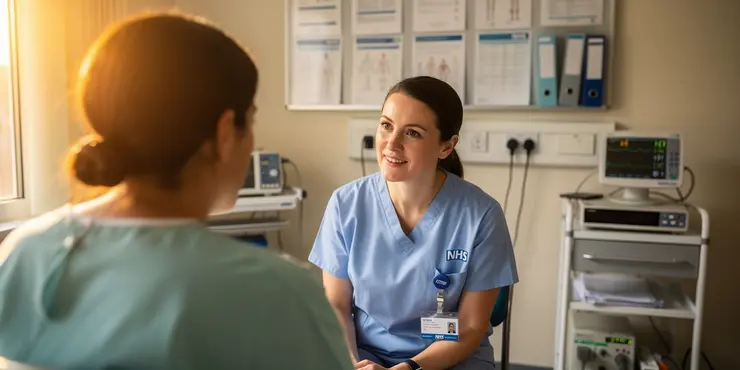
Bariatric Surgery - What to expect when you come to hospital for your operation.
Relevance: 6%
-
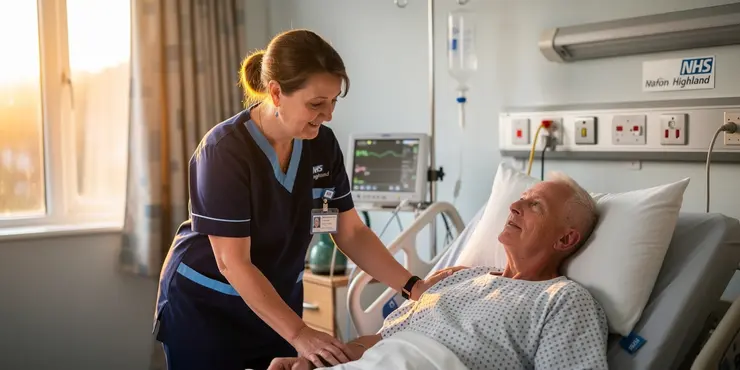
Heart attack care - Raigmore Hospital Inverness, NHS Highland
Relevance: 6%
-

Inpatient Surgery at North Bristol NHS Trust
Relevance: 6%
-
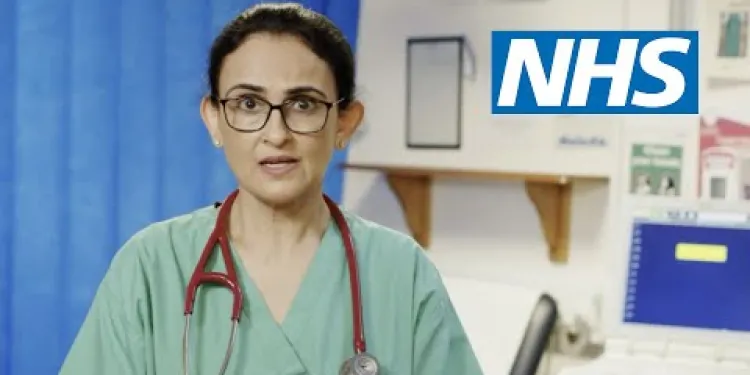
Heart Attack Stories | NHS
Relevance: 5%
-
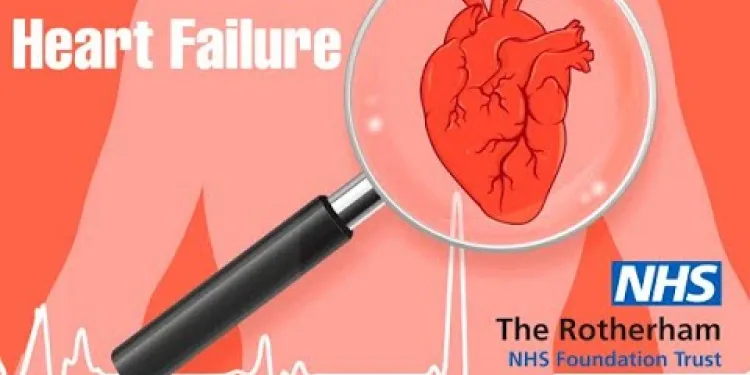
Heart Failure : Heart failure that cannot pump
Relevance: 3%
-

Heart failure introduction
Relevance: 3%
-
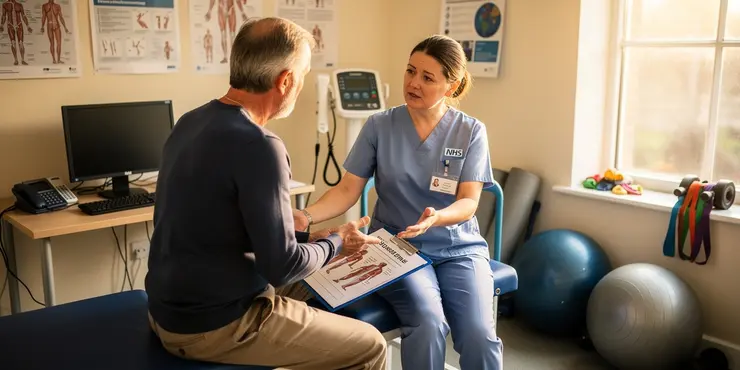
How do I prepare for hip replacement surgery?
Relevance: 3%
-
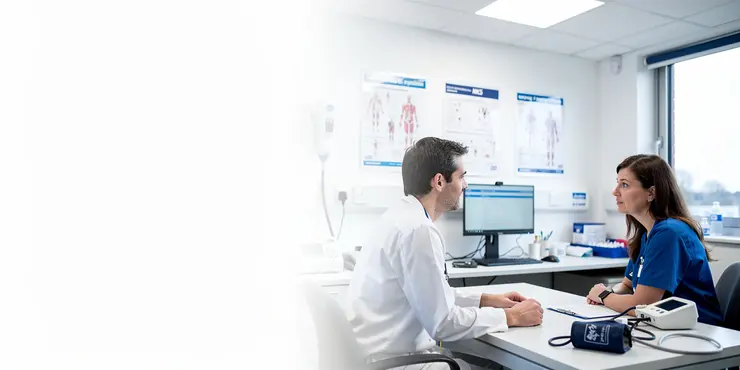
How can high blood pressure be treated?
Relevance: 3%
-
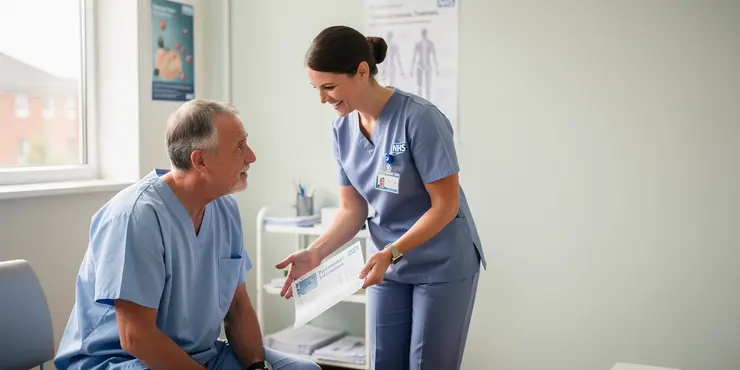
Having a pacemaker
Relevance: 3%
-
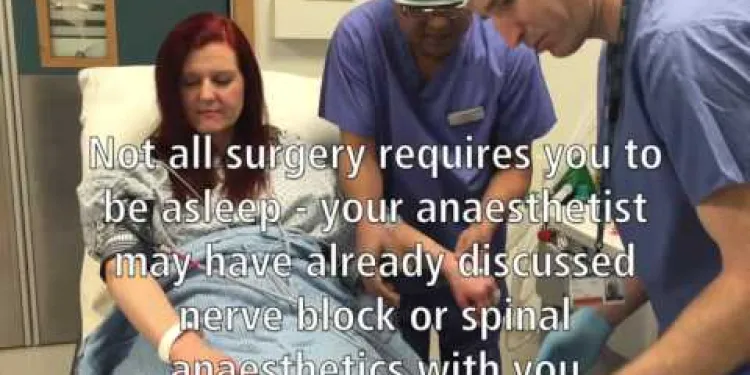
Your Operation at East Surrey Hospital
Relevance: 3%
-
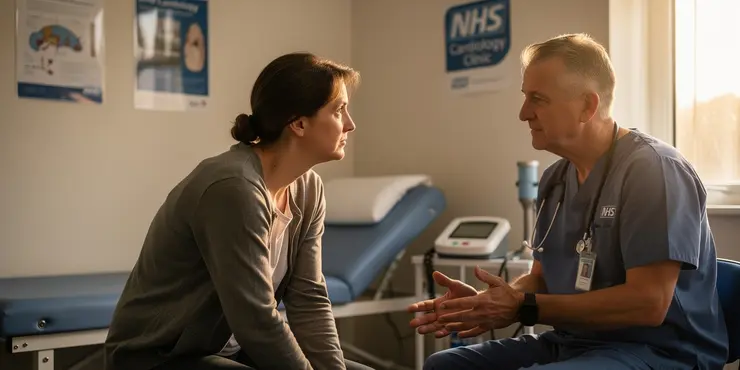
Coronary Bypass Grafting (CABG)
Relevance: 3%
Electrocardiogram (ECG): Understanding Heart Health
What is an Electrocardiogram (ECG)?
An Electrocardiogram, commonly referred to as an ECG or EKG, is a medical test that measures the electrical activity of your heart over a period of time. In the United Kingdom, this non-invasive procedure is routinely used to detect any underlying heart conditions by tracking the rhythm and electrical activity of the heart. An ECG is instrumental in diagnosing irregular heartbeats, heart attacks, and other heart-related disorders.
How is an ECG Conducted?
During an ECG, electrodes are placed on the patient’s skin at strategic locations such as the chest, arms, and legs. These electrodes detect the electrical signals generated by the heart as it contracts and pumps blood. The signals are then recorded on a moving paper strip or digital display, creating a record of cardiac cycles. The entire process is quick, typically lasting only a few minutes, and is painless, making it a widely accepted diagnostic tool.
Types of ECG Tests
There are several types of ECG tests commonly used in the UK. Besides the standard 12-lead ECG, which provides a detailed picture of heart activity, healthcare providers may employ wearable monitors like Holter monitors for extended monitoring over 24 hours or more. Stress tests, conducted while the patient is exercising, are another variant, revealing how the heart functions under physical exertion. Such tests are particularly useful in diagnosing coronary artery disease.
Importance of ECGs in Healthcare
Electrocardiograms play a pivotal role in preventive healthcare. For patients experiencing symptoms such as chest pain, palpitations, breathlessness, or dizziness, an ECG is one of the first tests ordered to assess heart function. In the UK, ECG results guide healthcare professionals in determining the next steps in a patient’s treatment plan, whether it be medication, lifestyle changes, or more advanced procedures.
Interpreting ECG Results
ECG results are interpreted by a trained healthcare provider in the UK, typically a cardiologist, who examines the pattern of waves and intervals on the ECG strip. Any deviations from normal patterns can indicate conditions ranging from minor anomalies to serious cardiac diseases. It is important for patients to discuss their ECG results with their healthcare provider to understand the implications and necessary follow-up action.
Electrocardiogram (ECG): Understanding Heart Health
What is an Electrocardiogram (ECG)?
An Electrocardiogram, or ECG, is a test that looks at how your heart is working. It checks the heart's electrical activity. In the UK, doctors use this test a lot to find heart problems. It helps them see if your heart is beating normally or if there are issues like a heart attack.
How is an ECG Conducted?
To do an ECG, small stickers, called electrodes, are put on your chest, arms, and legs. These stickers listen to the signals your heart makes when it beats. The signals are shown on paper or a screen. The test is quick, usually taking a few minutes, and it does not hurt.
Types of ECG Tests
There are different ECG tests in the UK. The standard test uses 12 stickers to get a clear look at the heart. Sometimes, doctors use a monitor that you wear for a day to watch your heart for longer. They may also do a stress test where you exercise to see how your heart works when you move. These tests help find problems like blocked heart arteries.
Importance of ECGs in Healthcare
ECGs are important for keeping people healthy. If you have chest pain, feel your heart racing, or get dizzy, an ECG is one of the first tests the doctor will do. In the UK, the results help doctors decide what treatment you may need, like taking medicine or changing habits.
Interpreting ECG Results
A trained doctor in the UK will look at your ECG results. They check the pattern of waves to see if there is anything unusual. This can show anything from small to serious heart problems. Talk to your doctor about what your ECG results mean and what steps to take next.
Frequently Asked Questions
What is an electrocardiogram (ECG)?
An electrocardiogram (ECG or EKG) is a medical test used to evaluate the electrical activity of the heart. It records the heart's rhythm and activity on a graph, helping diagnose various heart conditions.
Why might I need an ECG?
You might need an ECG if you are experiencing symptoms such as chest pain, palpitations, dizziness, shortness of breath, or if you have a history of heart disease. It is also commonly used in routine health check-ups and preoperative assessments.
How is an ECG performed?
An ECG is performed by attaching small sticky sensors called electrodes to your skin. These are placed on your arms, legs, and chest. The test is painless, quick, and usually takes about 5 to 10 minutes.
Is an ECG test safe?
Yes, an ECG is a safe and non-invasive test. There are no risks associated with it, apart from a potential slight irritation from the adhesive electrodes.
Do I need to prepare for an ECG?
No special preparation is needed for a standard ECG. However, it is advisable to avoid applying lotions or oils on your skin beforehand as they might interfere with the electrode adhesion.
What should I wear for an ECG test?
Wear comfortable clothing that can be easily removed or adjusted, as you may need to expose your chest area for the placement of electrodes.
Can I eat or drink before an ECG?
Yes, you can eat and drink normally before an ECG. There are no dietary restrictions associated with this test.
How long does it take to get ECG results?
ECG results can often be interpreted immediately by the healthcare provider performing the test. However, in some cases, a specialist may review the results later and provide a report.
Can an ECG detect all heart problems?
While an ECG can detect many heart-related issues such as arrhythmias and signs of heart disease, it might not capture problems that are intermittent or related to other parts of the cardiovascular system. Further testing may be necessary for a comprehensive evaluation.
What do abnormal ECG results mean?
Abnormal ECG results could indicate a range of issues, such as a previous heart attack, arrhythmia, or other heart conditions. It's important to discuss the results with a healthcare professional to understand their significance.
Can anxiety affect ECG results?
Yes, anxiety and stress can affect heart rate and rhythm, potentially impacting ECG results. However, the healthcare provider will consider this when interpreting the test.
Are there different types of ECG tests?
Yes, besides the standard resting ECG, there are other types such as the Holter monitor (a continuous 24-48 hour recording) and a stress test ECG, which is conducted during physical exercise.
How much does an ECG cost in the UK?
In the UK, an ECG is usually available for free on the NHS if required for medical reasons. Private healthcare providers may charge around £50 to £150.
Does an ECG detect heart attacks?
An ECG can indicate if a heart attack has occurred or is currently happening by detecting changes in the heart's electrical activity. However, it is often used in conjunction with other tests for a definitive diagnosis.
What is the role of a radiographer in an ECG?
Radiographers often do not perform ECGs; this task is typically carried out by trained nurses or cardiac technologists. However, radiographers may be involved in related imaging tests like echocardiograms.
What is an electrocardiogram (ECG)?
An electrocardiogram, or ECG, is a test. It checks how well your heart is working. It shows how your heart is beating.
Doctors use this test to see if your heart is healthy.
If you find reading hard, you can use tools to help:
- Ask someone to read with you.
- Use apps that read out loud.
- Take your time and read slowly.
A test called an electrocardiogram, or ECG, checks how your heart is doing. It looks at the heart's electrical activity. This test makes a picture of how your heart beats. Doctors use this picture to see if your heart is healthy or if there is a problem.
Why do I need an ECG?
You might need a heart test called an ECG if you feel chest pain, a fast or irregular heartbeat, dizziness, or if you feel like you can't breathe well. It can also be needed if you have had heart problems before. Doctors often use this test when they check your health or before you have an operation.
How do you get an ECG?
Getting an ECG is easy. Here is how it works:
1. You lie down on a bed.
2. A nurse or doctor puts small sticky pads on your chest, arms, and legs. These are called electrodes.
3. These pads are connected to wires. The wires go to a machine.
4. You stay still. The machine reads your heart beats.
5. The machine prints a paper with lines. This is your ECG report.
Getting an ECG does not hurt. You can ask the nurse or doctor any questions you have. They are there to help you feel okay.
An ECG is a test for your heart. It uses small sticky patches called electrodes. These patches go on your arms, legs, and chest. The test does not hurt and is quick. It takes about 5 to 10 minutes.
You can ask someone to explain it to you before the test. You can also use calming techniques like deep breathing if you feel nervous.
Is an ECG test safe?
An ECG test checks your heart. It is safe. The doctor puts small stickers on your skin. It does not hurt. The stickers are connected to a machine. The machine reads your heart. You can ask someone to go with you if you feel nervous. You can also bring a book or toy. This can help you feel calm.
Yes, having an ECG is safe and doesn't hurt your body. There are no risks with it, except you might feel a little itch where stickers are put on your skin.
Do I need to get ready for an ECG?
You don't need to do anything special to get ready for an ECG test. But try not to put any creams or oils on your skin before the test. These can make it hard for the sticky pads to stay on.
What clothes should I wear for an ECG test?
An ECG test checks your heart. Here is what to wear:
- Wear a shirt that you can easily take off.
- Choose clothes that are loose and comfortable.
- Avoid wearing creams or lotions on your chest.
Bring someone to help if you need support.
Wear clothes that are comfy and easy to take off or change. You might need to show your chest so they can put sticky pads on your skin.
Can I eat or drink before an ECG?
An ECG is a test that looks at your heart. You can eat and drink like you usually do before the test. Just try to avoid drinks with a lot of caffeine, like coffee or energy drinks. These can change your heart rate.
Here are some tips to help you:
- Eat your regular meals.
- Drink your usual drinks, but not too much caffeine.
- Wear comfy clothes for your test.
You can eat and drink like normal before you have an ECG test. You don't need to change what you eat or drink for this test.
How long do ECG results take?
An ECG is a test that shows how your heart is working.
The doctor or nurse usually gets the results quickly.
You might know the results the same day or the next day.
If they send the ECG to a specialist, it might take a bit longer.
Ask the doctor when you will get the results.
If you find it hard to read, ask someone to help you understand.
When you have an ECG, the doctor or nurse doing the test can usually tell you what it says right away. But sometimes, an expert might need to check it later and tell you what they find.
Can an ECG find all heart problems?
An ECG is a test for your heart. It checks how your heart is working. But, it does not find every heart problem.
If you are worried about your heart, talk to a doctor. They can do more tests to help you.
For help reading, you can use:
- A friend or family member can read it with you.
- Use a tool that reads the text out loud.
- Break the text into small parts and read slowly.
An ECG is a test that looks at your heart. It can find some heart problems, like when your heart doesn’t beat right or if there’s heart disease. But, it may not find every problem. Sometimes, the problem isn’t there when you take the test. Or, it might be in another part of your heart and blood system. You might need other tests to check everything.
What do abnormal ECG results mean?
An ECG is a test that looks at how your heart is working.
If the results are "abnormal," it means something is different with your heart.
Doctors use ECGs to check your heartbeat and see if it is healthy.
If you have trouble understanding ECG results, ask a doctor or nurse to explain it to you.
Using pictures or videos can help make it clearer.
An ECG test shows how your heart is doing. If the results look different from normal, it might mean there are problems like:
- Heart attack in the past
- Irregular heartbeat (called arrhythmia)
- Other heart issues
You should talk to a doctor about what the results mean. They can help explain it. You might also want to use tools that can read text out loud or talk to someone who can help you understand the information better.
Can being worried change heart test results?
Yes, feeling worried or stressed can change how your heart beats. This might show up on heart tests. But don't worry! Doctors know this and will think about it when they look at your test.
Are there different kinds of ECG tests?
Yes, there are different kinds of ECG tests. An ECG looks at how your heart is working.
- Resting ECG: You lie down, and the test checks your heart while you are still.
- Exercise ECG: You walk or run on a treadmill, and the test sees how your heart works when you move.
- 24-hour ECG: You wear a small machine for a day, and it records your heart all day long.
If you need help reading, you can:
- Ask someone to read it with you.
- Use a reading app that reads the text aloud.
- Use a dictionary to look up hard words.
Yes, there are different kinds of heart tests. One is the Holter monitor. You wear it for 1 or 2 days to check your heart all the time. Another is a stress test ECG. This test checks your heart while you exercise.
How much money do you need to pay for an ECG in the UK?
In the UK, you can usually get an ECG for free on the NHS if a doctor says you need it. If you go to a private hospital, it might cost between £50 and £150.
Can an ECG find heart attacks?
An ECG is a test for your heart. It helps doctors see how your heart is working.
An ECG can sometimes find heart attacks. But it is important to get help from a doctor or nurse if you feel any heart pain.
Here are some ways to get more help:
- Ask your doctor or nurse to explain things.
- Use drawings or simple words to talk about your heart.
- Write down what the doctor says during your visit.
An ECG is a test that checks how the heart is working. It can show if someone had a heart attack or if they are having one now. But, doctors also use other tests to be sure about what is happening.
What does a radiographer do during an ECG?
A radiographer helps with medical pictures. But during an ECG, which checks your heart, they might do something different. Let's look at how they help:
- Setting Up: A radiographer can help set up the room for the ECG test.
- Helping the Patient: They might make sure you are comfortable and calm before the test starts.
- Working with the Team: They might also talk to other team members like nurses or doctors.
Remember, ECGs are important to check how your heart is doing. Don't worry; the doctor will guide you through it.
If you want help understanding, you can:
- Ask Questions: Don't be shy to ask the radiographer or doctor to explain more.
- Use Pictures: Look at pictures or videos about ECGs to see how it works.
Radiographers usually do not do ECG tests. Nurses or heart doctors usually do ECGs. Radiographers might help with other heart pictures, like echocardiograms.
Useful Links
This website offers general information and is not a substitute for professional advice.
Always seek guidance from qualified professionals.
If you have any medical concerns or need urgent help, contact a healthcare professional or emergency services immediately.
Some of this content was generated with AI assistance. We’ve done our best to keep it accurate, helpful, and human-friendly.
- Ergsy carfully checks the information in the videos we provide here.
- Videos shown by Youtube after a video has completed, have NOT been reviewed by ERGSY.
- To view, click the arrow in centre of video.
- Most of the videos you find here will have subtitles and/or closed captions available.
- You may need to turn these on, and choose your preferred language.
- Go to the video you'd like to watch.
- If closed captions (CC) are available, settings will be visible on the bottom right of the video player.
- To turn on Captions, click settings .
- To turn off Captions, click settings again.
More Items From Ergsy search
-

Electrocardiogram ECG
Relevance: 100%
-

Performing a 12 lead ECG
Relevance: 54%
-

Cardiac Physiology Walkthrough
Relevance: 25%
-

How is heart failure diagnosed?
Relevance: 24%
-

Heart Failure : When the heart becomes stiff?
Relevance: 18%
-

Is my abnormal heart rhythm dangerous?
Relevance: 16%
-

Heart Failure : What is heart failure?
Relevance: 16%
-

Is it possible to have a heart attack without chest pain?
Relevance: 15%
-

Heart Failure : The normal heart
Relevance: 15%
-

Before Angioplasty
Relevance: 12%
-

What should I do if I experience symptoms of heart failure?
Relevance: 11%
-

What is heart valve disease?
Relevance: 9%
-

Can the test be performed during my menstrual period?
Relevance: 7%
-

What is angina and how is it treated?
Relevance: 6%
-

What exactly is an arrhythmia?
Relevance: 6%
-

South London Arrhythmia Nurses Forum (16 June 2022)
Relevance: 6%
-

What to expect when visiting our hospitals for surgery | Theatres
Relevance: 6%
-
What to expect when visiting our hospitals for surgery | Theatres
Relevance: 6%
-

Is my abnormal heart rhythm dangerous?
Relevance: 6%
-

Introduction to coronary angiogram and stenting
Relevance: 6%
-

Bariatric Surgery - What to expect when you come to hospital for your operation.
Relevance: 6%
-

Heart attack care - Raigmore Hospital Inverness, NHS Highland
Relevance: 6%
-

Inpatient Surgery at North Bristol NHS Trust
Relevance: 6%
-

Heart Attack Stories | NHS
Relevance: 5%
-

Heart Failure : Heart failure that cannot pump
Relevance: 3%
-

Heart failure introduction
Relevance: 3%
-

How do I prepare for hip replacement surgery?
Relevance: 3%
-

How can high blood pressure be treated?
Relevance: 3%
-

Having a pacemaker
Relevance: 3%
-

Your Operation at East Surrey Hospital
Relevance: 3%
-

Coronary Bypass Grafting (CABG)
Relevance: 3%


